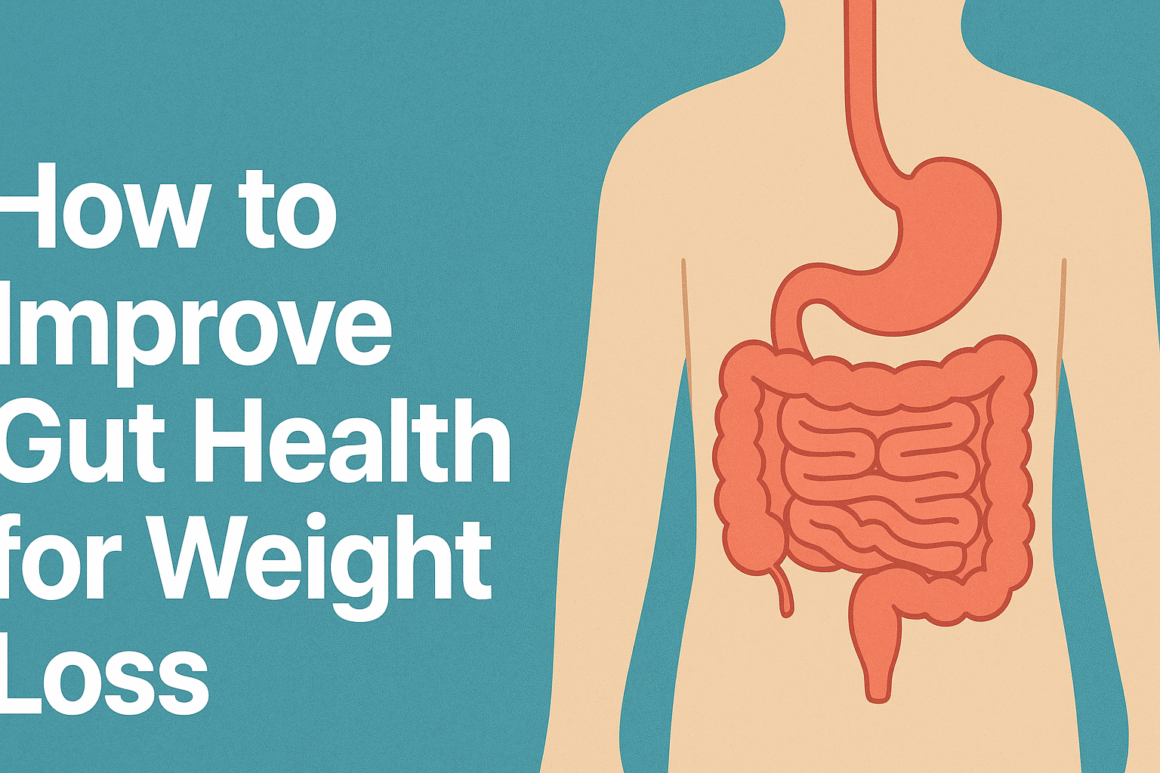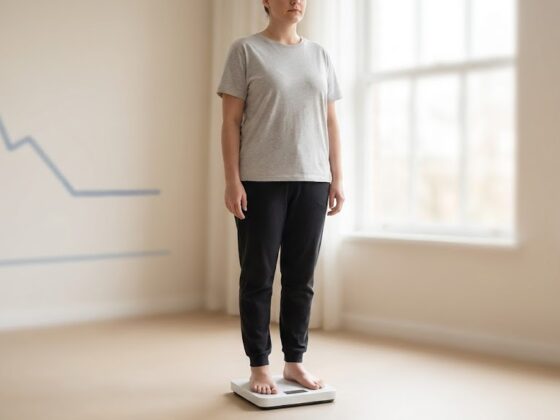Improving gut health isn’t just about reducing bloating — it can directly influence appetite, inflammation, insulin sensitivity, and even how efficiently you burn fat. If you’re searching how to improve gut health for weight loss, this is a hands-on, science-backed guide with exact targets, probiotic strain notes, a 7-day starter meal plan, and realistic timelines so you can measure progress.
Why gut health matters for weight loss (quick science)
Exercise, sleep and diet shape the gut: physical activity increases microbial diversity and butyrate producers; poor sleep and chronic stress shift microbiome balance unfavorably. Yale School of MedicineHarvard Health
Microbial diversity matters. People who lose weight successfully tend to show increases in gut microbiome diversity; low diversity is linked with obesity and metabolic issues. PMC
Short-chain fatty acids (SCFAs) produced by fiber-fermenting bacteria (eg. butyrate, propionate) help regulate appetite hormones (GLP-1, PYY) and reduce inflammation. PMCYale School of Medicine
The exact, science-backed plan (actionable steps)
1) Targets: fiber, hydration, movement
Exercise: ≥150 minutes/week of moderate aerobic + 2 sessions resistance training to help increase gut diversity. Yale School of Medicine
Fiber target: 25–35 g/day (start at your current level and add 5–7 g/week). Fiber feeds SCFA producers and raises diversity. Harvard and systematic reviews support fiber’s central role. Harvard HealthPMC
Hydration: Aim for roughly 2–3 L/day (varies by body size & activity) — water helps fiber transit and prevents constipation. Harvard Health
2) Fermented & polyphenol-rich foods
Polyphenols: green tea, berries, dark chocolate, coffee & olives support beneficial microbes — treat them as “prebiotic boosters.” Better Health Channel
Daily fermented serving: at least 1 small serving/day of yoghurt, kefir, sauerkraut, kimchi, miso or natto. These foods deliver live cultures and support diversity. UCLA Health
3) Probiotics — strains, evidence & realistic dose guidance
Evidence-backed strains (human trials):
- Lactobacillus rhamnosus (CGMCC1.3724 / LGG) — clinical trials found weight/fat reduction benefits in some groups, often women, especially when combined with fiber/synbiotic approaches. Typical trial formulations ranged from ~10^8–10^10 CFU combined with prebiotic fiber. PubMedMDPI
- Bifidobacterium (eg. B. lactis, B. animalis ssp. lactis B420) — multiple studies show reductions in visceral fat and improvements in metabolic markers with certain strains. PMCThe Lancet
Dose & duration guidance:
- Clinical trials most often use 1–10+ billion CFU/day; meta-analyses suggest longer durations (≥12 weeks) and doses ≥10^10 CFU/day are likelier to show consistent results. Use supplements with clearly labeled strains, and prefer multi-strain formulas when possible. Office of Dietary SupplementsScienceDirect
Practical note: fermented foods are safe and recommended for most people. Supplements can help but are strain-specific — consult a clinician if you have immune issues or serious illness.
7-Day starter meal plan (hit fiber + probiotics)
(Portions approximate; adjust to calorie goals.)
Day 1
- Breakfast: Oats + chia + blueberries + kefir (10–12 g fiber)
- Lunch: Lentil & spinach salad + olive oil (12 g fiber)
- Dinner: Grilled salmon, quinoa, broccoli (6–8 g)
- Snack: Apple + almond butter
Day 2
- Breakfast: Greek yogurt + flaxseed + strawberries
- Lunch: Chickpea wrap + sauerkraut
- Dinner: Brown rice, chicken, Brussels sprouts
- Snack: Dark chocolate square + berries
(Days 3–7 continue similarly — mix legumes, whole grains, fermented sides like kimchi/kombucha, and lots of veggies. Full 7-day plan included in the downloadable checklist.)
This sample helps you meet the 25–35 g/day fiber target and includes daily fermented foods.
What to expect (realistic timeline)
- Week 1–2: better digestion, reduced bloating, regularity improves.
- Weeks 3–6: appetite regulation improves as satiety hormones respond to SCFAs.
- 8–12 weeks: measurable weight/fat changes if calorie balance and activity are in place; probiotics trials commonly run ≥12 weeks. PMCScienceDirect
Tests and personalization
- Optional: stool microbiome tests can show diversity but are not necessary to start improvements. If you have persistent GI symptoms, consult a clinician or gastroenterologist. UCLA Health
FAQs
Will changing gut health alone make me lose weight?
Gut improvements help appetite, inflammation and metabolism but work best combined with calorie-aware eating and activity. PMC
How long before gut improvements affect weight?
Digestive shifts in 2–4 weeks; weight changes often show by 8–12 weeks with consistent diet/exercise. PMC
Which probiotic is best for losing belly fat?
Certain strains (eg. L. rhamnosus CGMCC1.3724, B. lactis, B420) have supportive evidence — but effects are strain-specific and modest. PubMedPMC
Can I rely on probiotic supplements instead of food?
Supplements can help, but whole fermented foods + fiber are sustainable and widely recommended. Harvard Health






